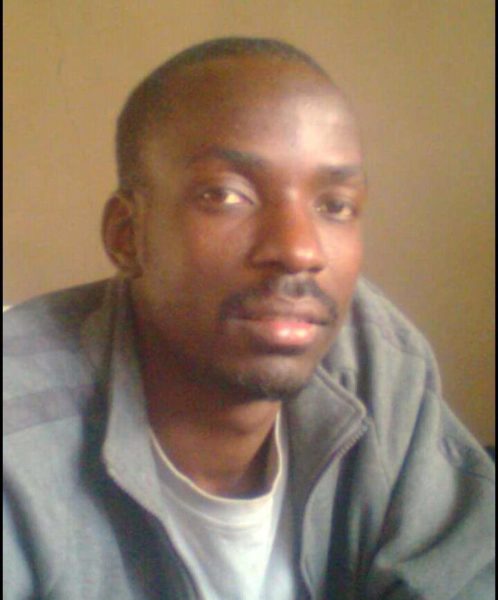Can We Program for the Holy Spirit’s Gifts?
by Arthur Sibanda | 17 March 2023 |
There is something wrong with our modern understanding of how the Holy Spirit endows believers with spiritual gifts.
It seems clear to me that we are not experiencing the full manifestation of the Spirit’s power—at least as the Spirit is described as working in the book of Acts.
Meanwhile, we have conveniently straitjacketed our understandings of spiritual giftedness to fall within certain parameters; perhaps because we are afraid of losing control, we have detailed most of our activities in manuals and policy books and programs.
There is nothing wrong with order, of course; however, I fear that we are in danger of using programming as a substitute for letting the Holy Spirit work among us.
The Acts of the Apostles—indeed, most of the New Testament—reads like an action-packed movie. The stories are interlaced with dramatic displays of the power of God. We observe Philip getting a direct message from an angel informing him of an immediate appointment that had been set up for him, which ended up with his disappearing soon after he baptized the Ethiopian (Acts 8:26). On another occasion Peter’s shadow was said to have brought healing to the sick (Acts 5:15-16).
Can you program the Spirit?
My point is that in the New Testament these events depended more on the schedule of the Spirit than the painstaking planning of the apostles in Jerusalem. It would seem the Spirit took the initiative of leading, and the church’s main mandate was to recognize and affirm the Spirit’s direction.
Now our collective congregational experience has been reduced to monotonous redundancy. We have created a culture of “how to do church,” which is implemented in similar (in some cases identical) programs in every part of the world.
In short, we promote uniformity in an attempt to achieve unity.
Because I don’t want you to think I’m merely being negative, I will attempt to clarify.
Do you think Dorcas (Acts 9:36) participated in welfare work to fulfill a church program? Who suggested to her to start her ministry? Were there many other people involved in her work for the poor, or it was it her personal work?
But now, welfare for the poor has become a church program? In my part of the world we have a woman who is elected to lead the Dorcas Society. She and her team clearly get their inspiration from the biblical Dorcas, and try to replicate her work.
The challenge is that by the terms of our programming, the ministry leader is selected to function for a term of a year, before there is an election of a new officer. Please note what a paradox this is: the ministry originated with a woman who never got elected to do what she was inspired to do—indeed, she is not known for anything else except that which defined her calling.
Elections or callings?
In a certain sense, the clergy are the only ones recognized to have a lifelong calling. With a few exceptions for certain office jobs, we do not elect them in and out of their calling, as happens to the rest of us. Some pastors have an elaborate account of how they got their conviction to join the ministry.
The laity are denied that same sense of calling. We, with our elections to lead programs, appear to have only an intermittent bestowal of spiritual gifts. While the clergy have long-term spiritual gifts, our spiritual gifts have a pre-programmed expiration date!
Thus, we have lay members leaving jobs that they are still inspired to do, or getting elected to offices for which they are not gifted when election time comes around.
I’ve even known some who have decided to join the pastoral ministry in order to get a more stable recognition of their gifts.
Or what happens when you are passionate about a ministry that does not neatly fit into any of the official church departments—which departments we sometimes see as the only categories wherein God works.
For example, I see my call to minister to those with sexual brokenness as a legitimate ministry. But because it doesn’t fit hand in glove within the programmed church departments, it is not seen by the church as a ministry. By its nature this ministry to which God has called me is an awkward fit in the church, because it involves uncomfortable disclosure. By not recognizing that God has called someone to do it, we minimize the impact it may have in the larger context.
No small ministry
Paul is clear that there is no small ministry. “If the whole body were an eye, how could you hear anything? If the whole body were an ear, how could you smell anything?” 1 Cor. 12:17. The Spirit cannot be bridled. Paul writes, “There are different kinds of ministries, but they come from the same Lord” (1 Cor 12:5).
I write this to plead that we think about spiritual giftedness in a new way. The Spirit is not controlled by the programs listed in the Church Manual, or those talked about by the church nominating committee, or by the promotions of the departmental directors in the conference office. All of us are gifted, and thus have significant roles to play. How do we empower all believers to use their Spirit-led creativity to more effectively reach out to others? Here’s a quote I like from a Celebrate Recovery Facebook post:
“Focus on what God called you to do, not what people think God called you to do.”
 Arthur Sibanda is a nurse. He and his wife, Mercy, have one daughter, Nobukhosi Tashanta. He enjoys writing, composing songs, and singing, and is also involved in a ministry helping people overcome sexual brokenness.
Arthur Sibanda is a nurse. He and his wife, Mercy, have one daughter, Nobukhosi Tashanta. He enjoys writing, composing songs, and singing, and is also involved in a ministry helping people overcome sexual brokenness.




